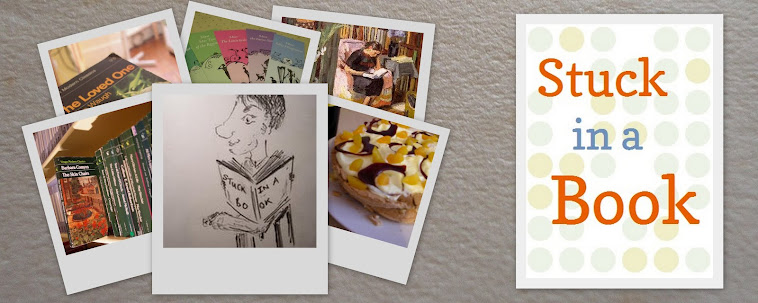 Just back from a very nice weekend in Somerset with Our Vicar, Our Vicar's Wife and The Carbon Copy - enjoyed the sunshine and fields and helping build a Kenyan hut's roof. It was never a normal upbringing, was it? Whilst at home I collected my new 'phone, which had been delivered there, and so Albert is my new ear-companion; farewell Orsino. Orsino (whose menu button is broken) was named after the Duke in Twelfth Night, of course, while Albert (who was bought because I wanted something dull and reliable; a Nokia) is after Queen Victoria's late husband, since dull and reliable were the watchwords of the Victorians.
Just back from a very nice weekend in Somerset with Our Vicar, Our Vicar's Wife and The Carbon Copy - enjoyed the sunshine and fields and helping build a Kenyan hut's roof. It was never a normal upbringing, was it? Whilst at home I collected my new 'phone, which had been delivered there, and so Albert is my new ear-companion; farewell Orsino. Orsino (whose menu button is broken) was named after the Duke in Twelfth Night, of course, while Albert (who was bought because I wanted something dull and reliable; a Nokia) is after Queen Victoria's late husband, since dull and reliable were the watchwords of the Victorians.
Stuck-in-a-Book couldn't be considered the centre of technological advancement in the Western World, but I got an interesting email this week from Litopia, a podcast about writing and all related malarkey. As far as I'm aware, podcasts are like radio, but released over the internet on a regular basis. Actually, what is the difference between radio and podcast? Someone tell me, if they know... All the news they gave is below for your perusal, but I'll give you my viewpoint for now...
True, I've only had time to listen to one podcast - it's the one from 1st June - and I'm impressed! The discussion was wide-ranging - what started with Dickens' desk coming up for auction wended into Abe Lincoln's hair and Britney Spears' chewing gum... Are writing courses the new mental hospitals? Robert McCrum talks about how the literary world has changed over the past ten years; James Bond and plagiarism... A wonderful mixing pot of popular interest and highbrow topics, some witty commentators, and the amusing phenomenon of ' [comma] England' being added after every place name.
one from 1st June - and I'm impressed! The discussion was wide-ranging - what started with Dickens' desk coming up for auction wended into Abe Lincoln's hair and Britney Spears' chewing gum... Are writing courses the new mental hospitals? Robert McCrum talks about how the literary world has changed over the past ten years; James Bond and plagiarism... A wonderful mixing pot of popular interest and highbrow topics, some witty commentators, and the amusing phenomenon of ' [comma] England' being added after every place name.
Pop along and have a listen. Nice to see bookishness taking over everywhere...
THE WORLD'S FIRST DAILY PODCAST FOR WRITERS IS HERE
London, UK. LITOPIA DAILY is the world's first daily podcast for
writers. Employing a combination of leading-edge technology and
old-fashioned showmanship, it aims to become an indispensible part of every
writer's day. The team behind LITOPIA DAILY are particularly keen to solicit
news and contributions from writers everywhere – especially from
non-traditional sources – and they have an easy and innovative method to
facilitate contributions.
HISTORY
Six months ago, Litopia Writers' Colony launched the first weekly panel
show for writers - LITOPIA AFTER DARK. Hosted by Peter Cox, the show
quickly attracted rave reviews (winning an unequalled 9.5 marks out of
ten on the review site Podwatch). Every week, thousands of listeners
download LITOPIA AFTER DARK shows – making it one of the fastest-growing
podcasts in the world. Guests have included some of the most exciting
and innovative figures in writing and publishing.
Building on that success, Litopia Writers' Colony is proud to launch
the world's first daily podcast for writers - LITOPIA DAILY. Says host
Peter Cox:
"With things changing so quickly in the publishing industry, it makes
sense to produce a short, daily podcast where writers can get their
daily fix of news, comment and - we know what you like - entertainment,
too. LITOPIA DAILY is going to be succinct and to the point - it'll give
you what you need to know when, or before, you need to know it. Like a
morning coffee, it'll set you up for the day!"
INTRODUCING THE OPEN INBOX
"LITOPIA DAILY is in the vanguard", says Peter. "So, as you'd expect
from us, we're doing something very radical indeed. We call it - the
Open Inbox."
Litopia's Open Inbox is a simple web address that allows contributors
to drop anything into the inbox… notes… pictures… faxes… phone messages…
and e-mails, of course. "We go through our Open Inbox several times
every day, looking for great material to include in the next day's show"
says Peter.
"Not everything will make it", he adds, "but material that's witty and
original - and short and sharp -stands a very good chance of getting
included."
DROP OFF A COMMENT
Eve Harvey, Podcast officer for Litopia Writers' Colony, explains how
contributors will use it. "You might want to send us a note about your
new book that's coming out", she say. "Or send us a press release.
Or, you might want to record a phone message to give a comment on
yesterday's show. Yes - the Open Inbox will take phone calls, too! Or maybe
you'd like to upload a file of some kind - perhaps, an audio file for
possible inclusion in LITOPIA DAILY."
Litopia's Open Inbox uses cutting-edge technology pioneered by Drop.io.
Simple instructions are given on the page here:
http://www.drop.io/litopiaThe new show launches its public beta schedule from June 9th. "We're
feeling our way" says Peter, "just as we did with LITOPIA AFTER DARK,
which took some months to naturally evolve. I don't think listeners will
mind a work in progress to begin with. We really do want LITOPIA
DAILY to become an important part of writing life on the internet. And we
hope that our listeners will become an active part of this very
exciting new venture! "
CONTACT DETAILS
• Unlike many forms of old media, we positively want to make it as
easy as possible for you to interact with us. We really do want to hear
from you! Contact us through our Drop.io address:
http://www.drop.io/litopia• LITOPIA DAILY is constantly looking for interesting special guests
to take part in the show. Publicists looking to book a client or an
author are welcome to send an e-mail to Litopia's Open Inbox with brief
details of the author concerned. Guest are booked approximately six
weeks ahead, and they are trailed in advance both on the website and also
in RSS feeds.
• Important: Any and all material sent to LITOPIA DAILY may be
broadcast. By sending us material, contribution or communication, the
contributor warrants that they are the legal owner and grants LITIOPIA DAILY an
irrevocable, non-exclusive license to use the material in any way seen
fit.
 fascinating book - will be writing about it soon.
fascinating book - will be writing about it soon. ential betrayal; J. Middleton Murry is quintessentially English; Katherine Mansfield is a little bitter about her life, but mostly sensible, likeable and sees through DH Lawrence's pretensions; Frieda Lawrence is explosive, thinks of food and sex a lot of the time, but funny and gregarious. One of the funniest moments was when DH Lawrence challenge John Middleton Murry to a wrestle, to help them bond as friends and release energy - DHL whips off his clothes and starts doing primitive stretching and lunging, whilst JMM carefully takes off each item of clothing, folding each one neatly and placing them in a tidy pile.
ential betrayal; J. Middleton Murry is quintessentially English; Katherine Mansfield is a little bitter about her life, but mostly sensible, likeable and sees through DH Lawrence's pretensions; Frieda Lawrence is explosive, thinks of food and sex a lot of the time, but funny and gregarious. One of the funniest moments was when DH Lawrence challenge John Middleton Murry to a wrestle, to help them bond as friends and release energy - DHL whips off his clothes and starts doing primitive stretching and lunging, whilst JMM carefully takes off each item of clothing, folding each one neatly and placing them in a tidy pile.





























